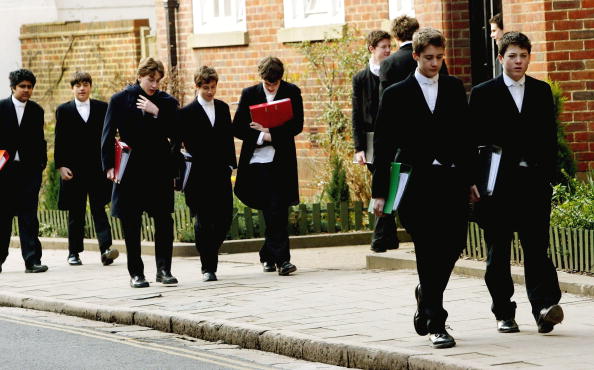Pay gap between state-educated and private school graduates could be narrowed through delivery of ‘better academic performance'
Head of new study says raising self-esteem, self-confidence and aspirations in state schools are 'unlikely to be very effective' in narrowing the pay gap

It has long been thought that private school graduates go on to earn more in later life than state-educated pupils because of a sense of arrogance and of entitlement. However, if one recent study’s results are anything to go by, it turns out the wide pay gap between both could be narrowed in one simple way: by providing a better quality of education in state schools.
Professor Francis Green of the UCL Institute of Education is, today, revealing the findings of a recent study which, he said, shows attributes like self-confidence and aspirations - along with advantages, such as access to social networks - are all developed in private schools.
However, other important traits, he added, such as self-esteem, are already present in privately-educated pupils as they possess the social advantages and prior cognitive skills associated with such qualities.
Overall, better education, superior academic performance, and entry to higher-ranking universities are the main reasons why private school males go on to earn 34 per cent more than their state school peers at the age of 42. Also by this age, women who attended fee-paying schools earn 21 per cent more, on average, than their state school counterparts.
The professor lead a team to analyse information on almost 11,000 people born across England, Wales, and Scotland whose lives are currently being followed by the 1970 British Cohort Study.
Having assessed aspirations, self-confidence, self-esteem, and social networks when the participants were ten and 16 years old, income - based on hourly pay - was measured at age 42.
More than two thirds of 16-year-olds from the top fee-paying schools believed they had a family or social connection that could help them land a managerial or other professional job they aspired to get. This compared to a third for pupils in other private schools, and only one in six for state school children.
Then, at the age of 16, pupils were asked about their desires for challenging or interesting roles with promotion prospects and high pay. On a scale of one to 100, state school children scored 62, while private school pupils scored 68.
Using the same scale, the researchers then found the self-esteem of prep school children at the age of ten was 68, whereas that of state school children was at 61.
Describing how narrowing the widening pay gap between private and state school educated children in later life may not be easier than perceived, the professor said: “Strategies to raise self-esteem, self-confidence, and aspirations in the state school sector are unlikely to be very effective in narrowing the pay gap. Such policies might seem attractive because they do not have to address the large differences in resources between the sectors.”
Overall, he said the study’s results suggested that social equality strategies should continue to focus on the ‘considerable educational disadvantages’ of state school pupils, relative to their privately-educated peers. He added: “The source of private schools’ advantage remains primarily their ability to deliver better academic performance.
His simple recommendation? “Policies should therefore remain focused on narrowing the gaps in educational achievement between private and state schools.”
Subscribe to Independent Premium to bookmark this article
Want to bookmark your favourite articles and stories to read or reference later? Start your Independent Premium subscription today.

Join our commenting forum
Join thought-provoking conversations, follow other Independent readers and see their replies